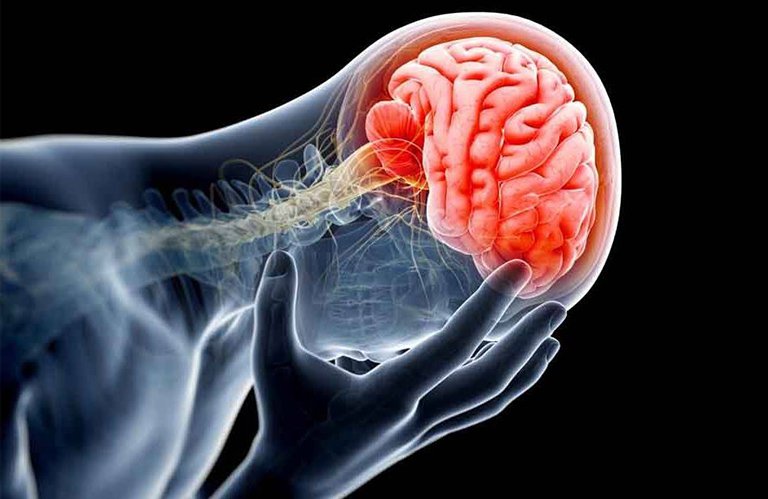Features of generalized convulsions
The article is professionally consulted by Master, Doctor Phan Ngoc Toan - Emergency Medicine Doctor - Emergency Department - Vinmec Danang International Hospital. The doctor has a lot of experience in the treatment of Resuscitation - Emergency.
A convulsion is a medical condition that involves the overactivity or concurrent activity of nerve cells in the brain. In particular, generalized convulsions are the most common type of seizures in clinical practice, regardless of whether adults or children can experience this condition.
1. Whole body convulsions
Generalized convulsions, also known as major epilepsy, are defined as seizures that occur in the whole body of the patient. Generalized convulsions occur when there is an abnormality of electrical waves in the brain, causing the patient's muscles to contract and central nervous system disorders leading to loss of consciousness. This disease needs to be detected and diagnosed correctly to have appropriate treatment so as not to affect the patient's brain.
Generalized convulsions can occur in both adults and children. In children, generalized convulsions may be related to genetic factors, family history of seizures and abnormal perinatal life, as well as history of related disorders or degenerative diseases. nerve cells. Generalized convulsions may resolve spontaneously without therapeutic intervention in adults, or appropriate drugs in the seizure regimen can be used to manage the condition.

Co giật toàn thân có thể xảy ra ở cả trẻ nhỏ
2. Generalized convulsion
Generalized seizures often appear suddenly with manifestations such as hallucinations, dizziness, disturbances in vision, taste and smell. After this initial phase, the patient will have typical seizure symptoms that include:
Biting on the cheek or tongue during the convulsion, teeth grinding, urinary incontinence, apnea, shortness of breath, bluish skin, pale mucous membranes . Confusion Drowsiness more than usual Headache Muscle weakness on one side of the body Some causes of generalized convulsions are:
Brain waves work abnormally, possibly excessively or synergistically time. Brain injury Brain infection Lack of oxygen supply to the brain Stroke Brain blood vessels abnormality Brain tumor The concentration of sugar, sodium, calcium, magnesium in the body falls below the allowable level.

Những tổn thương não là nguyên nhân dẫn đến co giật toàn thân
In addition, certain factors make generalized seizures more likely, including:
Family history of seizures Patient has a history of trauma, stroke, or infection, among others. Patients with insomnia Medical problems affect the balance of electrolytes in the brain People who use alcohol and drugs. In order to make an accurate diagnosis of generalized convulsions, it is necessary to take the patient's history, family history, and the nature and duration of the seizures. In terms of subclinical, patients will be measured EEG EEG to investigate the status of electrical brain waves, computed tomography or brain magnetic resonance imaging also contributes to the accurate diagnosis of generalized convulsion. than.
3. Convulsions treatment protocol
After diagnosing generalized convulsions by clinical symptoms and performing paraclinical tests, the patient will be applied a convulsion treatment protocol to handle this condition. The drug used in this regimen is an anticonvulsant. Usually, a patient with a generalized seizure will be prescribed a combination of multiple anticonvulsants to achieve the most effective treatment. Anticonvulsants work to reduce the frequency of generalized seizures and reduce the severity and severity of each seizure. However, in clinical practice, there are some patients with severe convulsions, so after using anticonvulsants, there are still subsequent seizures, so it is necessary to closely monitor the patient's hospital stay and Check the patient's condition continuously so that surgery may be indicated in special cases.

Người bệnh cần tuân thủ phác đồ xử trí co giật theo đơn của bác sĩ
In addition, in order to limit the complications of generalized convulsions, patients can be counseled to change their lifestyle habits as well as appropriate nutrition to improve generalized convulsions. Some notes that convulsive patients need to take to improve this condition include:
Take medication at the correct dose as prescribed by the treating doctor Practice wearing a signal bracelet in a seizure disorder, Informing doctors and medical staff what medications a convulsive patient is taking When having a generalized seizure, the patient's family can assist with placing a pillow under the head, then moving the position. The patient lies on his side to avoid suffocation, put objects that are likely to cause injury or injury to the patient during the patient's seizure, loosen the patient's clothing.. When the generalized convulsion goes on for too long and the symptoms get worse, take the patient to a reputable medical facility for treatment. Seizures are one of the common occurrences in many different diseases. Convulsions include many types of diseases, the most common of which are generalized or generalized convulsions. To avoid unwanted complications caused by convulsions, family members need to observe the patient closely while the generalized convulsion occurs, if there is no tendency to spontaneously resolve after a short period of time, it is necessary to to a medical facility for proper treatment.
Để đặt lịch khám tại viện, Quý khách vui lòng bấm số HOTLINE hoặc đặt lịch trực tiếp TẠI ĐÂY. Tải và đặt lịch khám tự động trên ứng dụng MyVinmec để quản lý, theo dõi lịch và đặt hẹn mọi lúc mọi nơi ngay trên ứng dụng.
SEE MORE
Notes when using antipyretic drugs for children High fever convulsions in young children: How to give first aid at home safely? How to handle when the baby has a high fever convulsion?






